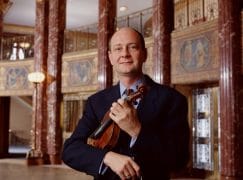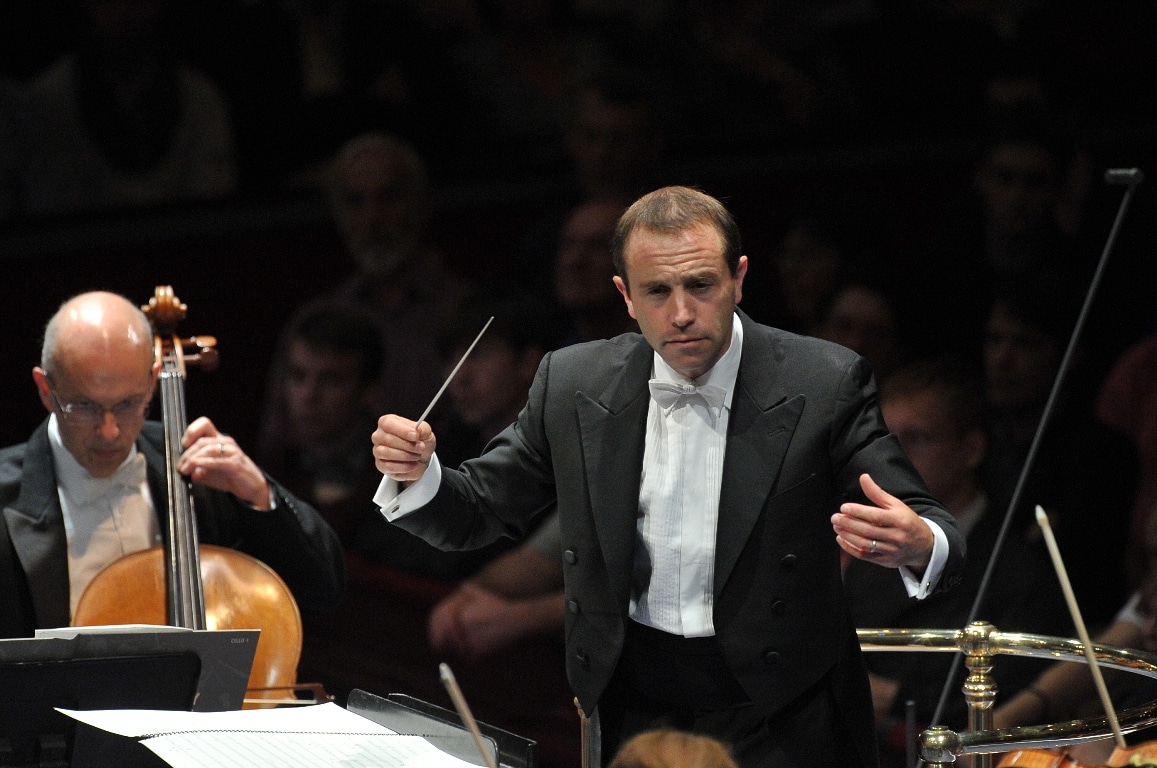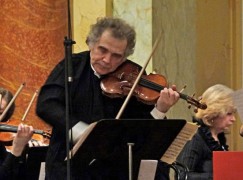The Cleveland Plain Dealer carries a report of alleged sexual misdemeanours against two young female musicians by William Preucil, who was suspended as concertmaster after a Washington Post investigation.
One complainant says he stuck his tongue down her throat, the other that he looked up her skirt. Report here.
The Cleveland Orchestra has set up a commission of inquiry.

Three classical musicians appear in a list of pop celebrities who have sent a letter to Theresa May, drafted by Bob Geldof, calling for Brexit to be called off.
The letter argues:
We dominate the market and our bands, singers, musicians, writers, producers and engineers work all over Europe and the world. In turn, Europe and the world come to us. Why? Because we are brilliant at it. No one quite knows why this should be but everyone understands it to be so. The sound and the words seem universal. It reaches out, all inclusive, and embraces anyone and everyone. And that truly is what Britain IS! That is proper Global Britain.
But Brexit threatens, as it does so much else, this vast voice. This huge global cultural influencer. We are about to make a very serious mistake regarding our giant industry and the vast pool of yet undiscovered genius that lives on this little island.
The classical signatories are Rattle, John Eliot Gardiner and Howard Goodall. There may be others but they haven’t been named.
Former ENO chief Mark Wigglesworth, promoting his new book:
… a collegiate and humble approach to leadership is that which performers appreciate the most, and is ultimately the most successful. The best conductors, just like the best theatre directors, achieve what they do through a natural authority that doesn’t need a contract or a podium to assert itself. Their power comes from a trust in those they work with, an openness to what they hear, and a willingness to respond to that without loss of face.
This respect is then reciprocated, creating a virtuous circle that allows everyone to give their all. In both music and drama I believe the subtle approach travels the furthest.
This form of leadership is at odds with our times. In political circles at least, views have to be extreme to be heard. Self-centred appears strong. Loud is good. The nuanced view struggles for air(time) and the most popular leaders are the ones who shout the most. Whether they have vision is considered to be secondary. People seem comforted by dogma.
Music and drama, on the other hand, show that collaborative leadership works. It actually works very well. I am not suggesting that our finest conductors and directors should run the country, but I think they provide evidence that this form of leadership is not a utopian impossibility. People are happy to be led by a leader who is not too proud to follow.
Read on here.

The Director-general Tony Hall is due to announce plans this week to make the BBC’s back catalogue of classical music available online.
Hall says it will mean historic and recent performances are ‘returned to the public’, via BBC iPlayer and the BBC Sounds app.
They will not be generally available outside the UK.

His message:
My dear Monserrat what an amazing life and career you’ve had. Thank you for your amazing voice and the innumerable moments of joy you haven given the world with it. I will always treasure our many performances together and the numerous recordings we made throughout the years. What a privilege to have shared the stage with you. You will be missed. Rest In Peace  🙏
🙏 💔 God has called another angel to his reign. Always … Plácido
💔 God has called another angel to his reign. Always … Plácido

Amid divided opinion on the Hungarian conductor, but the critic Joseph Horowitz has come up with a 1934 letter from Stokowski’s ex-wife in the year Stoki gave up the orchestra he had made world famous.
She runs through the merits of various candidates – Reiner, Kleiber, Klemperer, Furtwängler and more – but she opts for Ormandy: ‘I was overwhelmed by the display of qualities that were so like the young Leopold that it was uncanny. I am not speaking of externals of conducting that might be imitative of Stokowski’s methods. I am speaking of purely musical and temperamental qualities, of phrasing, feeling and orchestral balance . . . As a man I do not yet know him very well but I have already had occasion to discover one priceless quality – loyalty.’…
Read on here.

The World Federation of International Music Competitions has paid for an expensive supplement in the current issue of BBC Music magazine.
It opens with this statement: ‘The World Federation of International Music Competitions ensures fair play and high quality and provides and arena for discussion and mutual support among members.’
Mutual support must come in handy when Zakhar Bron and Boris Kuschnir – to name two of the worst miscreants – enable yet another of their students to take top prizes in a contest that they judge. Maybe it’s the mutual support that allows these practices to continue.
Would the WFIMC like to offer its view of events like this?

My dear friend and colleague Tim has written a memorable article on the effects of music on his late-diagnosed autism and, more recently, on his brain injury. As ever with Tim, each word is perfectly chosen and the sound of his words is pleasure itself.
Extract:
And now I am old and injured, and my brain has taken on some of the characteristics of a double reed instrument. In my younger days it worked on force and magnitude of expression, like a trumpet or saxophone. Now I am overwhelmed unless I am working with the tiniest exhalation, in the manner of an oboe or bassoon, and I take new care with every utterance.
It’s especially strange to be old in New York, city of my youth and early successes and deep late-night conversations in the pubs of upper Broadway. These days I hobble slowly to the building lobby down the same stairs I invariably took two at a time. I have trained myself out of volunteering my services immediately – to help out! to join in! to stay late! – as I am quickly reminded that I am no longer who I was. Aging is so terribly personal: I have known people who were old in their 30s and others who were mostly young into their 80s. In 2014, I was a middle-aged man in what turned out to be very poor health. Now I am in many ways happier, certainly thinner and probably stronger, and steadier in my self-understanding, at least on those days when I am rested and my memory is working properly. I am both much less afraid of death and more eager for life.
Still, old is old, and 64, to counter the exasperating cliché, is not at all the “new 40” but barely qualifies as the “new 63.”…
Read on here.

A damning report in the Guardian finds that many of the UK’s top music schools are directing grants intended for children from poor families to those who are conspicuously well-off.
The standfirst reads: Families with £190k income receive awards meant to help disadvantaged attend Yehudi Menuhin and Chetham’s schools.
Specifically: Figures obtained by the Guardian show that, despite the aim to help disadvantaged young people, families earning up to £190,000 a year are receiving awards. At Yehudi Menuhin for example, two students whose parents earn between £170,000 and £190,000 are getting MDS help with the £43,000-a-year boarding fees.
Read on here.

Full source data here.








